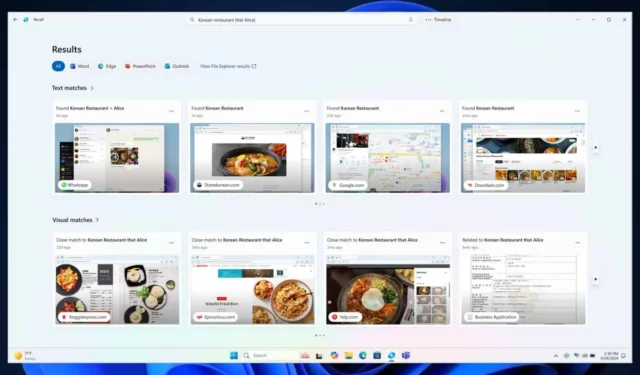Is Recall a Major Factor Preventing Users from Migrating to Windows 11?

One of the highlight announcements at this year’s Microsoft Build event was Windows Recall. Since its unveiling in May, this feature has sparked significant debate over its implications for security and privacy.
Initially seen as a method for capturing and archiving user activity on Windows via recorded videos, many technology experts have sought to identify vulnerabilities and shortcomings within this feature. Their findings were so concerning that Microsoft decided to reevaluate Recall and enhance its security measures.
After multiple delays, Windows Recall is set to launch in December as part of the Windows Insider Program. Despite the security and privacy enhancements introduced by Microsoft and confirmations that Recall will function only on Copilot+ PCs, where it can be completely uninstalled, many users believe it remains a major deterrent against upgrading to Windows 11. This trend poses challenges for Microsoft.
Since its global launch three years ago, Windows 11 faces hurdles within the operating system market. At present, it enjoys a market share of approximately 35%, while over 60% of users continue to rely on Windows 10, an operating system that has been around for nearly a decade.
Microsoft had initially rolled out the Extended Security Update (ESU) program, which will be available for a three-year period. Recently, the tech giant from Redmond announced that users could make an initial payment of $30 for the first year, intending to ease the transition to Windows 11, yet it might not be a compelling enough reason for users to upgrade.
According to discussions on Reddit, a platform where Windows users candidly share their views, many participants cite Recall as a significant reason for their hesitance to move to Windows 11 for the time being. However, some users express interest in learning more about the feature, while others highlight that a lack of understanding of how Recall operates persists among many Windows users.
It’s important to note that Windows Recall is completely optional and currently only supported by Copilot+ PCs, as it relies on an AI-powered neural processing unit (NPU) to function effectively without causing conflicts. Microsoft has assured users that the feature can be uninstalled entirely and does not activate automatically.
In summary, although Recall may contribute to the reluctance toward upgrading to Windows 11, it’s not the sole factor. Windows 11 currently faces various issues, such as intrusive ads and instability with significant updates (evidenced by the numerous problems associated with the recent 24H2 patch, for instance). The operating system also demands more advanced hardware, even though it can be run on older PCs.
If Microsoft desires Windows 11 to succeed, the company must promptly tackle these challenges.
Does Recall make you reconsider Windows 11 as your daily OS? byu/Decision0ver inWindows11


Leave a Reply